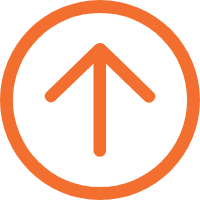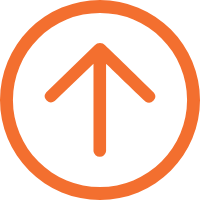HPRT Digital Textile Printers Transform Home Textiles with Speed, Precision, and Customization
The home textile industry is experiencing a dynamic transformation, driven by the rise of digital textile printing. This cutting-edge technology reshapes how fabric manufacturers produce home decor, offering unprecedented flexibility and efficiency.
Unlike traditional screen printing, digital printing eliminates the need for physical screens, making it more cost-effective for small-batch production and customization. Moreover, digital fabric printers deliver vibrant colors and intricate and high-resolution designs directly onto fabrics.

Whether through direct-to-fabric printing or dye-sublimation, this modern approach speeds up production while meeting the growing demand for unique, personalized home textiles.
A Brief Overview of the Home Textile Market
The home textile is one of the fastest-growing areas in the digital textile printing market. In particular, the demand for digitally printed bedding, curtains, upholstery, and decorative fabrics has surged, accounting for a significant portion of the overall market demand.
Today, home textile styles exhibit a trend toward diversity, with minimalist, bohemian, vintage, geometric, and floral styles being particularly popular. Additionally, personalized customization with text, pets, or family photos is becoming increasingly trendy.
Bohemian (Boho) curtains and throw pillows, in particular, often showcase intricate patterns, rich textures, and vibrant color combinations that are challenging to replicate accurately using traditional screen printing.
Digital textile printing, however, excels in reproducing these complex designs with exceptional precision. Moreover, this technology is particularly well-suited for short-run production and offers a more efficient and eco-friendly approach.
Common Fabrics and Digital Printing Techniques in Home Textiles

Home textiles come in a wide variety of fabrics, each with its unique qualities. Because of this, different fabrics need specific types of textile inks and digital printing techniques. The table below highlights the best approaches for different fabric types.
Home Textile Product | Common Fabrics | Common Digital Printing Techniques |
Bedding (sheets, pillowcases) | Cotton, Polyester-Cotton Blends, Linen, Silk, Modal, Bamboo | Direct-to-Fabric Printing (Pigment, Reactive Dyes), Dye-Sublimation Printing |
Curtains | Cotton, Polyester, Silk, Linen | Direct-to-Fabric Printing (Pigment, Reactive Dyes), Dye-Sublimation Printing |
Upholstery (sofas, chairs) | Velvet, Polyester, Cotton, Linen, Cotton-Linen Blends | Direct-to-Fabric Printing (Pigment, Reactive Dyes), Dye-Sublimation Printing |
Towels | Cotton, Bamboo | Pigment Printing, Reactive Printing |
Cushions | Cotton, Polyester, Velvet, Velour | Direct-to-Fabric Printing (Pigment, Reactive Dyes), Dye-Sublimation Printing |
Tablecloths | Cotton, Polyester, Linen | Direct-to-Fabric Printing (Pigment, Reactive Dyes), Dye-Sublimation Printing |
Rugs and Carpets | Wool, Nylon, Polyester, Synthetic | Direct-to-Fabric Printing (Acid, High-Temperature Disperse), Dye-Sublimation Printing |
Wall Tapestries | Cotton, Polyester, Linen, Synthetic | Direct-to-Fabric Printing (Pigment, High-Temperature Disperse) |
Cotton, polyester, and linen remain the most commonly used fabrics in the home textile industry.
When selecting home textile printers, fabric manufacturers must carefully consider both the material properties and ink characteristics.
HPRT Digital Fabric Printers for Home Textiles
The HPRT DA188S is a highly versatile roll-to-roll direct-to-fabric textile printer. Compatible with acid, reactive, high-temperature disperse, and water-based pigment inks, it can deliver high-speed, high-precision printing on cotton, linen, silk, nylon, polyester, and various blended fabrics.

With a production capacity of up to 1080 square meters per hour, the HPRT DA188S is an ideal home textile printer for large-scale printing of high-end bedding, sofa covers, cushions, and other home textile products.



At the upcoming 2024 ITMA International Textile Machinery Exhibition, HPRT will showcase its newly developed DA208S EVO and DA189S EVO series direct-to-fabric printers. These digital textile printing machines offer even faster print speeds and support large-format printing. Visit us at Hall 5, Booth H5B11!
For printing on polyester fabrics, we recommend HPRT's DA186T Plus Dye Sublimation Fabric Printer.

This industrial dye-sub printer offers a maximum media width of 1900mm and multiple resolution settings, with a max resolution of up to 600*1200 dpi.
It supports flexible 4-color and 6-color modes (CMYK+Lk, Lm, or two other specialized colors), producing vibrant colors, sharp images, excellent color fastness, and a smooth hand-feel, perfect for custom curtains, carpets, cushions, pillows, and other home textile products.

As a professional China home textile printer supplier, HPRT provides a full range of industrial digital printers, including direct-to-garment printers, belt-driven direct-to-fabric printers, dye sublimation printers, and hybrid printers.
Our experienced technical team provides one-stop services from equipment installation and software operation to technical training, offering tailored digital printing solutions to meet diverse customer needs.
Looking to produce personalized products in small batches? HPRT digital textile printers provide the flexibility you need, boosting production efficiency and reducing costs. Contact us today!









